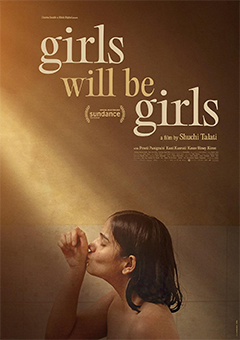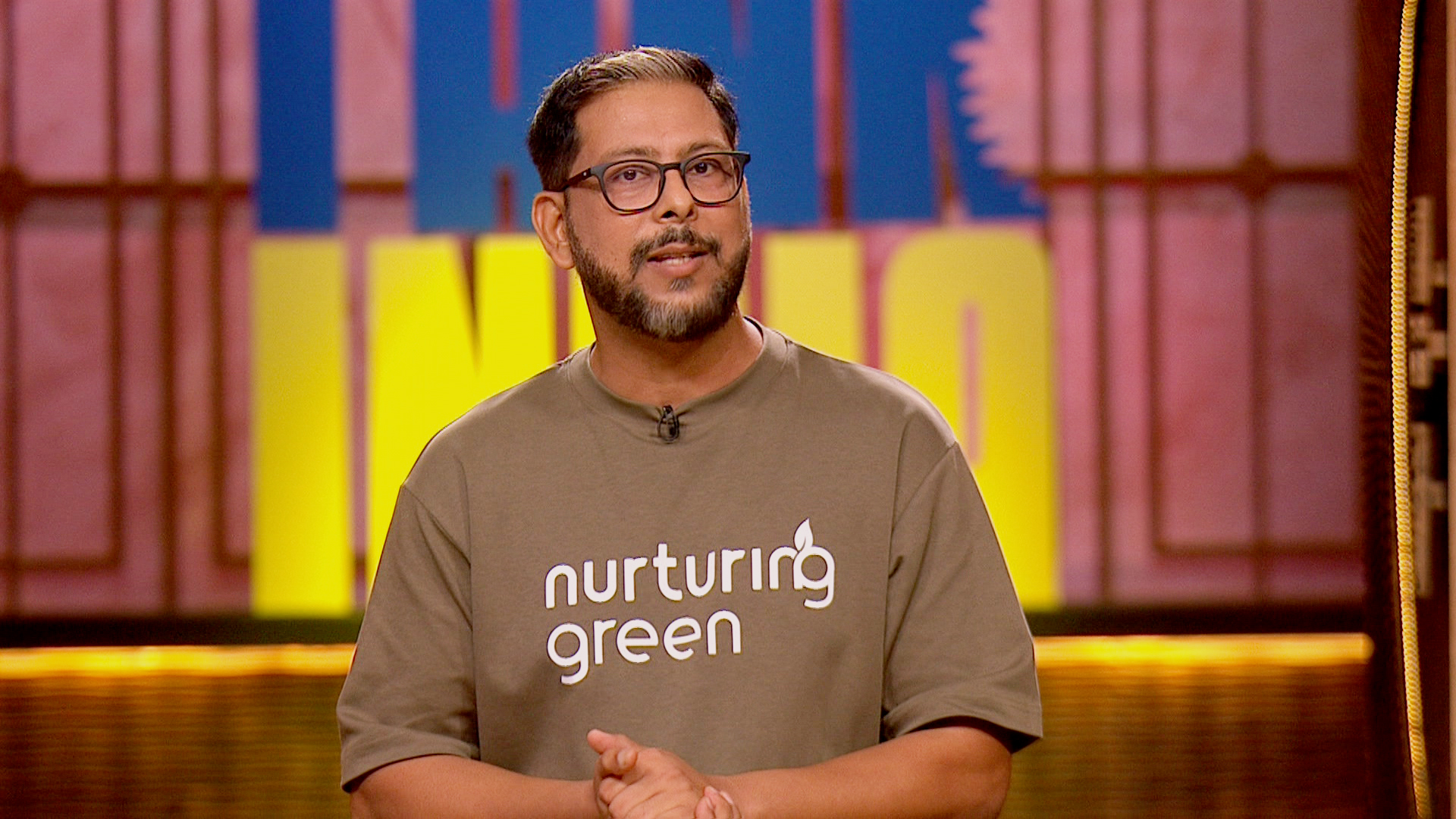
A coming-of-age tale that oversteps its boundaries – Beyond Bollywood
First-time producers Ali Fazal and Richa Chadha’s coming-of-age drama, centered on complex relationships, pushes the boundaries a bit too far for some tastes. However, young talents Preeti Panigrahi and Kesav Benoy Kiron impress in their debut performances.
Rating: ⭐️⭐️( 2 / 5)
By Mayur Lookhar
At the promotional event, two things intrigued us. With a title like Girls Will Be Girls, surely from here on, boys will be boys will be perfectly acceptable. Jokes aside, with a production house named Pushing Buttons Studio, Richa Chadha and Ali Fazal promised to live up to that name by telling edgy stories.
Written and directed by Chadha’s US-based friend Shuchi Talati, Girls Will Be Girls (2024) is an edgy coming-of-age story. Before delving into this world, we were intrigued reading about Talati’s first film, Mae & Ash (2012), which revolves around a couple’s relationship being tested when the husband’s former girlfriend stays with them for a week. The film subtly explores how insecurities creep in.

Fast forward to 2024, Talati continues to explore insecurities, but this time it’s a daughter feeling insecure about her mother becoming too friendly with her boyfriend. Phew, the trailer had us fearing an unholy relationship, but that’s not the story of Girls Will Be Girls.
Set in the 90s in a picturesque hill town in North India, Mira (Preeti Panigrahi), the head prefect of her class, is infatuated with her classmate Srinivas (Kesav Benoy Kiron), who recently moved from Hong Kong. When her mother, Anila (Kani Kusruti), catches her talking on the phone, Mira claims Srinivas is just a friend who wants to study and learn from her. Impressed by Srinivas, Anila invites him over. As Mira and Srinivas grow closer, the young couple starts to explore their relationship, but Mira becomes irked by her mother’s growing fondness for the boy, especially since she has never been close to her single mother.
Thalati’s film is told through the prism of an 18-year-old dealing with coming-of-age issues and navigating both new and old relationships.

Who doesn’t relate to first love? But is the milieu conducive to it? Talati’s school romance unfolds in an institute that prides itself on extreme discipline—so much so that overt friendliness between boys and girls invites strict action. Girls are reprimanded for shortening their skirts, and on Teacher’s Day, seniors pledge to protect Indian culture. Mira, the head prefect, takes this pledge but fails to uphold it. The horror unfolds on campus when unruly boys publicly shame Mira, with no teacher or authority intervening, exposing the myth of discipline in this high school. In such an environment, how many teens would even dare to express their feelings for someone? It is bizarre to see Mira not fret when, during their first meeting, Srinivas requests a kiss, and instead, she pecks him after turning the boy down.
The truly bizarre events, however, take place in Mira’s home. Starting as a protective mother, it’s baffling how Anila feels comfortable allowing this boy to spend considerable time in her house. She even lets him sleep on her bed while she reads—or pretends to. In an earlier scene, Anila asks the boy to shut his eyes as she steps out of the bathroom wrapped in a towel to fetch her clothes. Is this a mother’s way of testing the boy’s character? Setting aside Indian norms, how many households worldwide would give an outsider such access to their personal lives? It’s hard for us to relate to such things.
After a promising start, Girls Will Be Girls loses momentum, with Talati banking heavily on intimacy to sustain engagement. While most scenes are aesthetically shot, the director seems overly drawn to sensual moments. Certain bold scenes involving a teenage character make for uncomfortable viewing and detract from the narrative’s impact.
For all its girls will be girls promise, the story sadly devolves into a boys will be boys narrative. Talati’s film ultimately seems to suggest that in this society, girls will never truly be allowed to be themselves. In the end, one feels empathetic towards poor Mira, but the banal screenplay saps all energy. Though only 123 minutes long, the last 30-40 minutes feel overly stretched.

While the story and screenplay are unconvincing, Ali Fazal, Richa Chadha, and Talati deserve praise for introducing two outstanding young talents in Preeti Panigrahi and Kesav Benoy Kiron. Hailing from Delhi with roots in Orissa, Panigrahi, though slightly older in real life, convincingly portrays a 18-year-old. The young actress plays her innocent, studious, and vulnerable character with the finesse of a seasoned pro. In a time when physicality and beauty are prioritized, how many young girls would dare to embrace and reveal their hairy armpits? Her beauty is mainly captured in scenes where she gazes at herself in the mirror. Panigrahi seizes the opportunity, delivering a performance far beyond her years.

Ditto for Kesav, who has a charming presence but backs it with the requisite intensity. You are suspicious of him, yet the boy’s charm offensive is hard to ignore.
As good as Panigrahi and Kesav are, one wonders— for young actors a first film is a dream come true, a moment to be cherished with loved ones. But given the edgy plot and certain bold scenes, would these actors, with their middle-class roots, feel comfortable watching such content with their parents? We’re not judging young Preeti or Kesav, but most first-time actors from middle-class families would likely be skeptical.

Killer Soup, All We Imagine As Light, and now Girls Will Be Girls – it’s been a breakout year for Kani Kusruti. Anila is protective but not a helicopter mother. She married at 21 but now feels she rushed into it, a belief only reinforced by her divorce. Naturally, Anila wants to ensure her daughter doesn’t follow in her footsteps. But girls will be girls. However, Mira isn’t so fond of her mother. Before this boy enters her life, there’s no clear reason for the girl to dislike her mother. Kusruti, however, brings depth and sincerity to every moment.
As an Indo-French co-production, the film benefits from high-quality technical support, with Jih-E-Peng’s world-class cinematography standing out. Though lacking a background score, it’s the intensity of the conflict and the gripping intimate moments that keep you hooked. As always, though, technical brilliance is only part of the equation; without a compelling story and screenplay, true entertainment remains incomplete.
It’s fine to seek edgy stories, but Richa Chadha and Ali Fazal must be careful not to push many buttons. Catering to global sensibilities is fine, but remember, an Indian film will always need to earn respect from its Indian audience.
Watch the video review below.
Publisher: Source link


